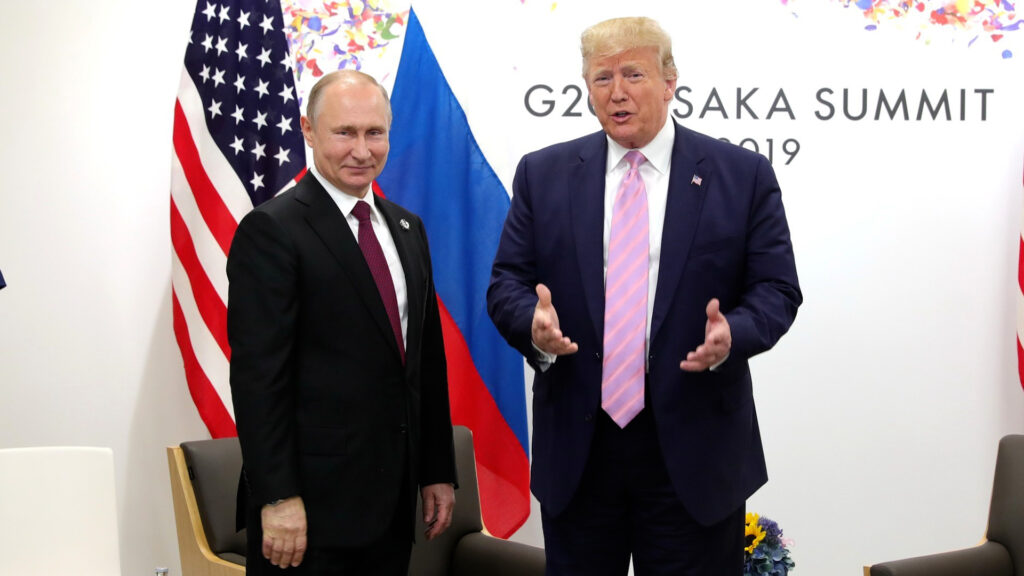President Donald Trump is scheduled to speak with Russian President Vladimir Putin on Monday, May 19, in an attempt to broker a ceasefire in the ongoing war in Ukraine. The call, set for 10 a.m. EST, follows the first direct peace talks between Russian and Ukrainian delegations in over three years, held last week in Istanbul, but yielded no breakthrough.
Trump also plans to speak with Ukrainian President Volodymyr Zelenskyy and leaders from NATO countries, saying the goal is to stop the “bloodbath” that he claimed is killing more than 5,000 Russian and Ukrainian soldiers weekly. That figure has not been independently verified.
What is being proposed?
European leaders have urged Russia to accept a 30-day unconditional ceasefire, a plan backed by Trump, Ukraine and several European Union nations. French President Emmanuel Macron said Sunday that Putin “must show he wants peace” by agreeing to the ceasefire terms.
Despite repeated claims that he could end the war quickly, Trump has struggled to make progress since returning to office due to the wide gap between Russian and Ukrainian demands. The Kremlin has resisted his calls for direct talks with Zelenskyy and has sent only a lower-level delegation to the Istanbul meetings. Ukraine has called Russia’s demands, reportedly including the withdrawal of Ukrainian forces from occupied territory, unacceptable.
What have Ukraine and Russia said?
Ukraine remains wary of Russia’s terms. Zelenskyy met with Vice President JD Vance and Secretary of State Marco Rubio in Rome on Sunday to discuss the situation ahead of Trump’s calls. He also demanded additional sanctions on Russia following a drone strike that killed civilians in Sumy.
Good meeting with @VP J. D. Vance and Secretary of State @SecRubio in Rome.
During our talks we discussed negotiations in Istanbul to where the Russians sent a low level delegation of non-decision-makers. I reaffirmed that Ukraine is ready to be engaged in real diplomacy and… pic.twitter.com/ko2cKKYvCZ
— Volodymyr Zelenskyy / Володимир Зеленський (@ZelenskyyUa) May 18, 2025
Putin, meanwhile, has called for guarantees that address what he sees as the root causes of the war and secure Russia’s national interests. Kremlin spokesman Dmitry Peskov confirmed that the call with Trump would proceed and described the conversation as “important.”
How has the world responded?
Trump’s approach has sparked concern among some allies. Former U.S. Ambassador to Ukraine Bridget Brink, who resigned in April, criticized the administration for putting pressure on Ukraine instead of Russia. “Peace at any price is not peace at all ― it is appeasement,” Brink wrote in an opinion piece last week.
Still, Trump’s envoy, Steve Witkoff, said he expects the call with Putin to be “very successful,” describing the direct engagement as essential to progress.
Speaking on NBC’s Meet the Press, Treasury Secretary Scott Bessent said sanctions remain on the table if Russia stalls talks or acts in bad faith.
What’s next for the peace effort?
Although no formal ceasefire was reached in Turkey, both sides agreed to a large prisoner exchange. Ukraine’s intelligence chief said the swap could begin this week.
Trump has said he would be willing to meet Putin in person to accelerate peace talks.
“He and I will meet, and I think we’ll solve it or maybe not,” Trump told reporters Friday, at the end of his Middle East tour. “At least we’ll know.”
contributed to this report.


